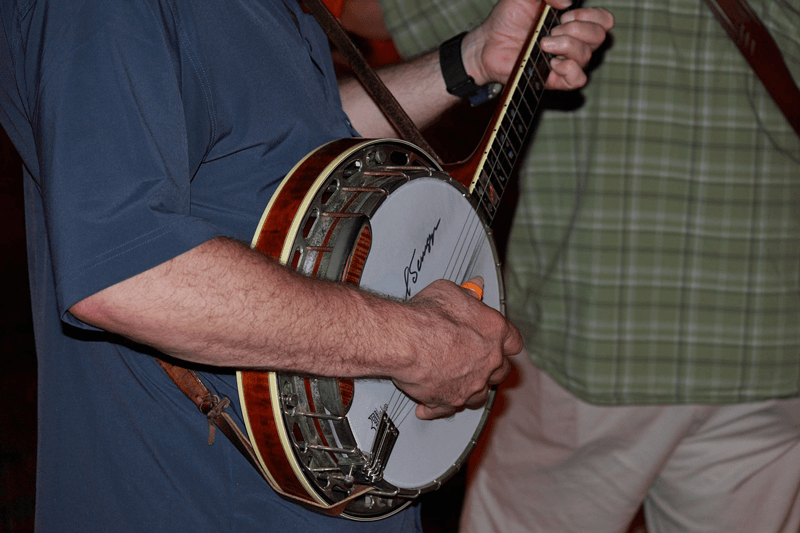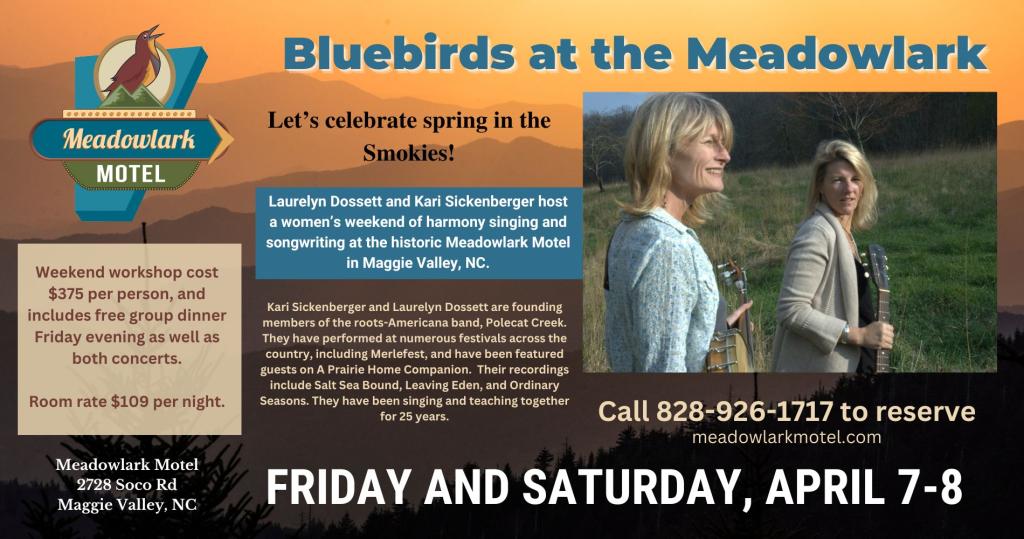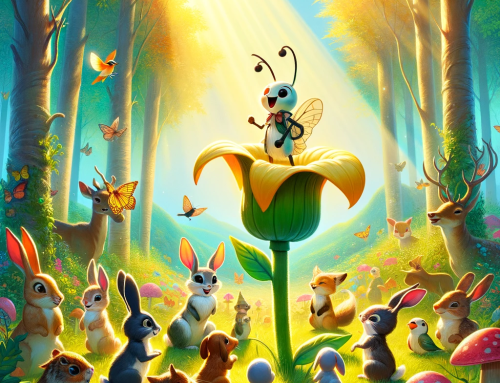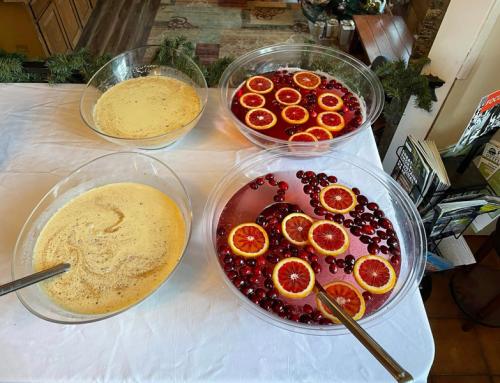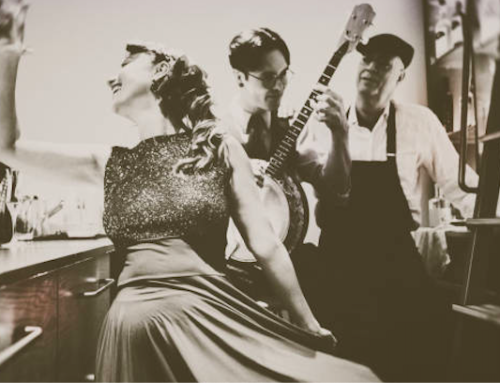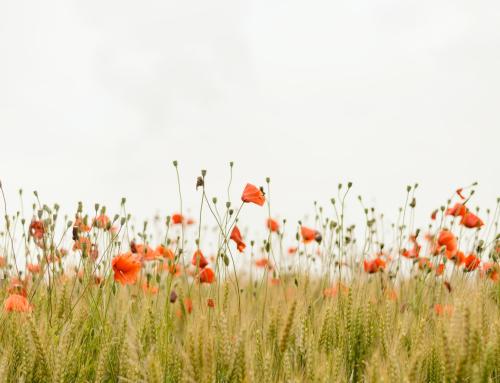The Life Blood Of the Smokies
Mountain music and songwriting have been an integral part of Appalachian culture since the days of the ancient Cherokee. Their rhythmic tribal chants, songs and dances –all commemorating important milestones in their lives, have blended seamlessly into the mists of these storied mountains for centuries. Later their native voices were joined by immigrants from around the globe. Folks hoping for better lives, who brought their own unique instruments and songs from their respective cultures to the region. This multi-cultural contingent learned from their new neighbors while introducing new melodic memories and creating original styles of American music and songs all their own.
The Scots Irish Ballads
Ballads like Matty Grove, The Cuckoo Bird, Pretty Polly and countless other tunes originated in the British Isles before getting additional twists in the Appalachians. Gaelic and Celtic fiddle tunes from the Scottish Highlands, along with lowland Scottish laments, such as Barby Allen, eventually became staples in remote mountain homesteads, accompanied by master fiddlers who developed their own bow style, often writing new versions of similar songs to add to their extensive repertoire.
German Yodels
German settlers brought songs with them like Fishers Hornpipe, and their native instrument known as the Scheithol, evolved into the Appalachian dulcimer. Germanic, Swiss and Scandinavian yodels added yet another distinct vocal style in mountain music. Meanwhile, Spanish and Italian immigrants favored guitars and mandolins as their instruments of choice, and used them as instrumentation in crafting their own hauntingly beautiful songs.
Church Music
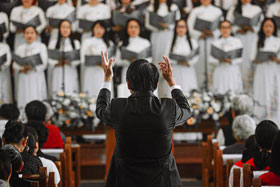
This divergence of cultures blended together for a sound like no other. A sound that was perfected with the addition of African American elements mixed in.
African Americans
As significant as all of these cultures were to mountain music, few, if any, Appalachian immigrants had a more profound influence on Appalachian –and indeed American music, as a whole — than African Americans.
African American slaves and freed men often sang, plucked banjos –an instrument originating in their native homeland –and buck danced. Still others wrote and performed iconic tunes celebrating Black heroes like John Henry, documenting hard times and oppression in songs like Coal Miners Blues and scores of other laments pertaining to their often-tragic lives. These Black artists later developed the genre of American Blues Music – a worldwide phenomenon in its own right –which which has been a major influence in almost every major form of modern American music recognized today– including rock, rockabilly, jazz, country, gospel and Bluegrass.
Bring on the Bluegrass
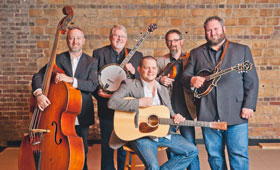
A.P. Carter wrote many classic original songs of his own or with his family, like You Are My Flower, Hello Stranger, No Telephone in Heaven and I Never Will Marry, as well as adapting versions of traditional songs such as Wildwood Flower, Dixie Darling and Foggy Mountain Top among others.
Not long after that, mountaineer Bill Monroe, invented his own style of traditional string music as he incorporated all the major instrumental elements of mountain music –the mandolin, guitar, banjo, fiddle, bass and dobro –combined with unusual, intricately layered harmonies and lead vocals with masterfully written lyrics. This illustrious high and lonesome sound is now known as Bluegrass music. Monroe, like A.P. Carter, was a superb and prolific songwriter as well, credited with penning over 100 original songs –including Blue Moon of Kentucky which eventually became a hit rock ballad for Elvis Pressley. Most of Monroe’s songs remain staples for touring bluegrass bands today.
Tony Rice, Flatt and Scruggs, Ralph Stanley, Doc and Merle Watson, Sam Bush, J.D Crowe, Raymond Fairchild, Doyle Lawson, Shawn Camp, Bobby Hicks –just to name a few — perpetuated the legacy of Monroe while writing new songs of their own as they blazed creative and innovative musical trails in the universe of modern mountain music. A genre now more commonly known as Americana music—a cultural stew of all these elements emphasizing the best qualities of traditional Appalachian music.
Current Music Scene in the Smokies
Original mountain music continues to be generated and resonate across these storied hills as Americana musicians and songsmiths like Kari Sickenberger and Laurelyn Dossett hone their craft in honoring their own mountain musical heroes by creating new songs for future generations –and inspiring them to create new tunes of their own.
Check it out
The historic Meadowlark Motel and Smoky Mountain Heritage Center proudly welcomes these artists for our first annual Woman’s Songwriter Camp and Concerts on April 7-9, 2023.
Experienced Songwriters like Kari and Laurelyn, along with other great performers, will team together in entertaining and educating you in creating your own songs — as well as two awesome concerts, both performed in an intimate VIP setting!
Space is limited, please call 828-926-1717 for further details pertaining to this once in a life time event—don’t miss it!!!



